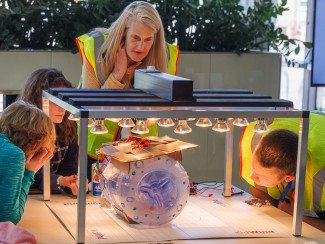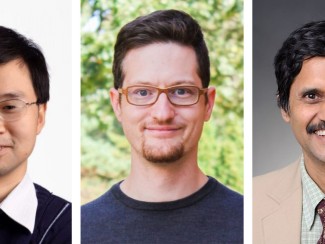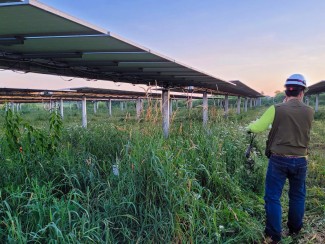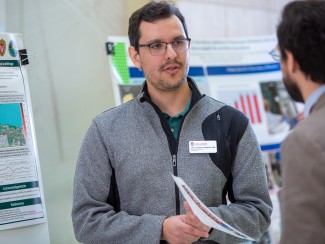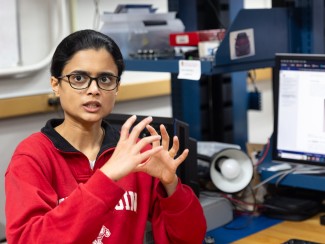The history of energy-related research at UW–Madison, part 5
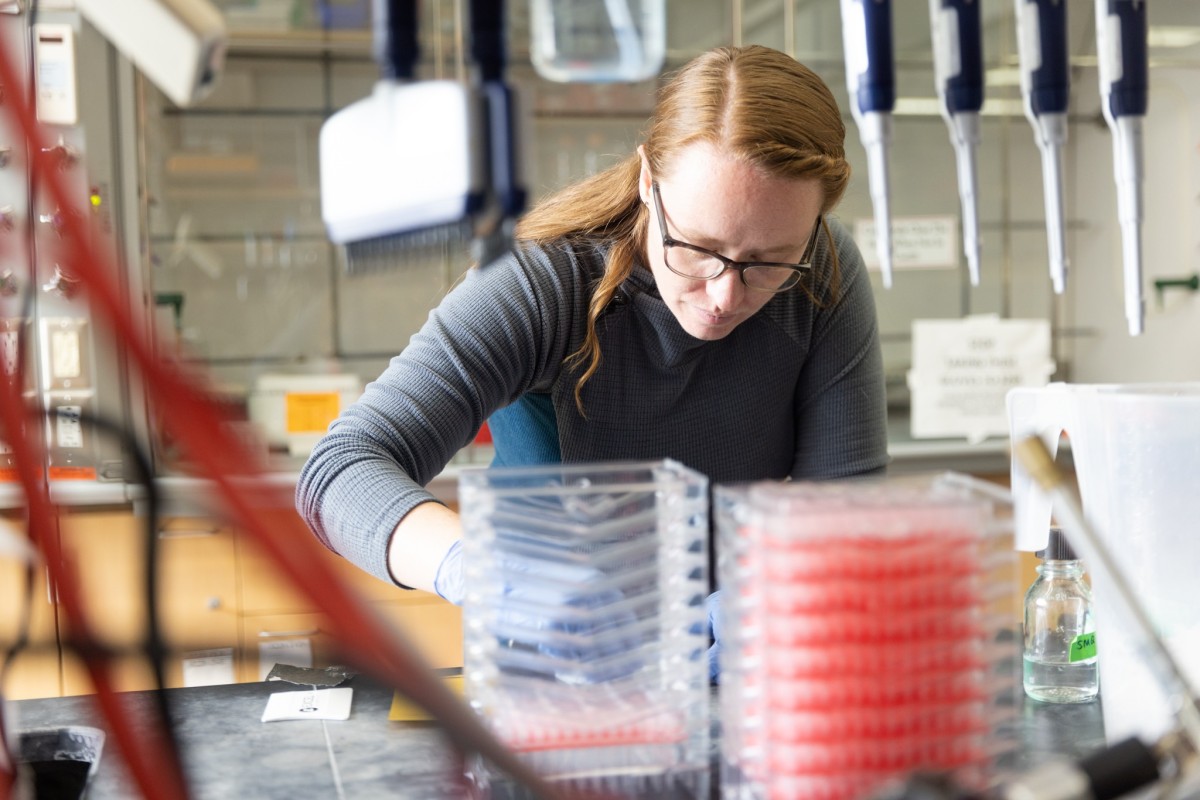
Despite thousands of discoveries, patents, and technological breakthroughs, many of the University of Wisconsin–Madison's greatest contributions have been basic research, the quest to better understand fundamental aspects of the world and provide the knowledge that underpin technological advances.
“They tend to be more in the weeds,” said Paul Wilson, chair of the nuclear engineering and engineering physics department. “It's not like there’s some major piece of handheld technology that people can associate with our department here, like an iPhone or something like that.”
Perhaps the biggest single contribution is the alumni, including many serving as leaders of local, state, and national government agencies as well as private industry.
“Our main product is the student,” said Greg Nellis, director of the Solar Energy Lab. “I think that's going to be our continuing legacy.”
Wilson, now chair of the nuclear engineering department, notes that alumni hold prominent leadership positions in industry and government, including a member of the Nuclear Regulatory Commission and another leads the Department of Energy’s Office of Nuclear Energy.
“One of our big values all along has been leadership,” Wilson said.
Alumni of the Energy Analysis and Policy program serve as utility regulators in Wisconsin and California as well as leaders of utilities, advocacy groups, and energy consulting firms.
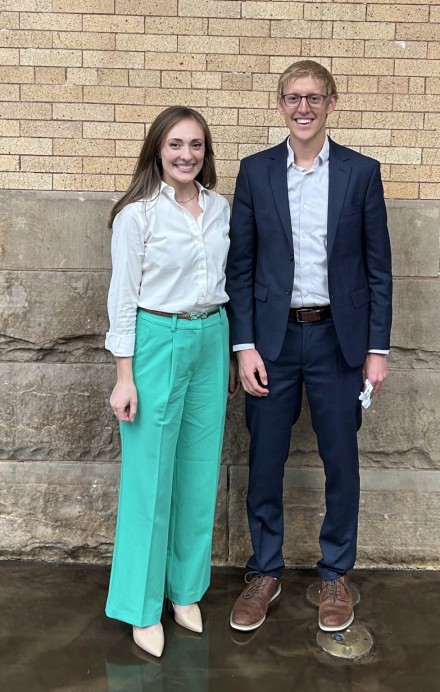
When Marcus Hawkins, a graduate of UW–Madison’s nuclear and mechanical engineering programs, was appointed to the Wisconsin Public Service Commission in April, he recruited fellow EAP alum Mikhaila Calice to serve as his advisor.
Calice, who earned a doctorate in Life Science Communications, credits EAP with preparing her for the challenges of regulating utilities as they navigate the transition to cleaner energy.
“The EAP program really provided me with a solid foundation of the ways in which all of these different issues connect together and how the policy making process works,” Calice said.
While the Great Lakes Bioenergy Research Center's primary mission is doing basic research to enable sustainable plant-based replacements for fossil fuels and chemicals, hundreds of former students and staff have honed their craft in the center's labs.
"As a bioenergy research center housed at universities, GLBRC provides valuable hands-on field, lab and computational training for undergrads, graduate students, and early-career researchers," said center director Tim Donohue. "Our alums become the workforce and future leaders in academia, industry, and government."
Brianna Duran earned a master’s degree in environment and resources from UW–Madison, working in the labs of two GLBRC co-investigators. Today she prepares graduate students for industry research fellowships through the Environmental Defense Fund’s Climate Corps.
Duran initially planned to be a research scientist but discovered a passion for education while doing public outreach for GLBRC.
“That's really what opened my eyes to wanting to go the education route,” Duran said. “Students don't always have those kinds of diverse opportunities, and so I think having that opportunity really set me up for my first job out of grad school."
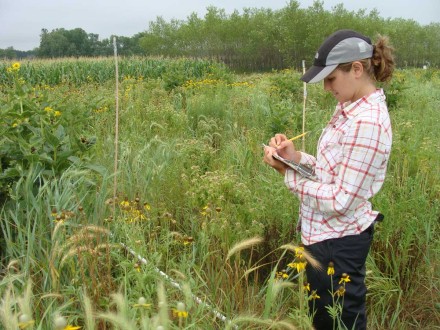
Duran said being part of interdisciplinary groups like GLBRC and the Wisconsin Energy Institute was good preparation for her career.
“I think it's set me up well for quickly learning the many different fields of sustainability and climate that exist out there,” she said.
At a recent panel discussion on the university’s contributions to energy research, a group of current and former faculty members whose tenure covers nearly six decades were asked to predict the future of energy research. Answers included microbial production of fuels and chemicals, the socio-political components of the energy transition, and the contributions of advanced computing.
“The data and analysis is going to change the whole way we look at energy systems,” said Wes Foell, an emeritus professor of nuclear engineering whose collaborations in the 1970s laid the foundation for interdisciplinary study and a more holistic understanding of the intersections of policy and energy.
Holloway said we need “more voices” to expand the base of people doing the research beyond the mostly white, male engineers who traditionally dominated the field.
“We have been using a sliver of the human capacity available to our campus on this problem,” Holloway said. “I’m very excited to think about what are some onramps to bring people who … might not have thought of themselves as an energy person into the energy mix.”

